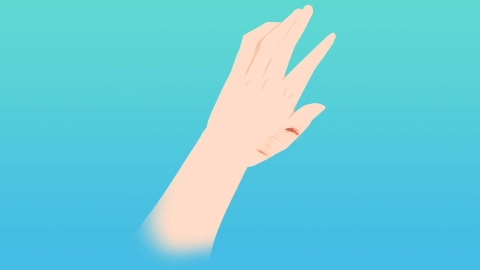What kind of cut or injury requires a tetanus shot?
There is no such thing as "only needing a tetanus shot if cut by something sharp." A tetanus vaccine or tetanus antitoxin injection is required in cases of deep or dirty wounds, animal bites or scratches, extensive and deep burns, open fractures or wounds with foreign objects, or contaminated surgical wounds to prevent infection. If the wound becomes red, swollen, increasingly painful, or if systemic discomfort occurs, prompt medical attention is advised.

1. Deep or dirty wounds: For example, puncture wounds caused by rusty metal or sharp objects contaminated with soil, especially when the wound depth exceeds 1 cm and contains debris. Clostridium tetani can easily multiply in such oxygen-poor environments, so timely tetanus vaccination is necessary to prevent infection.
2. Animal bites or scratches: Bites or scratches from animals such as cats, dogs, or rats may introduce bacteria from saliva into the wound. Additionally, animal claws often carry dirt and contaminants, posing a risk for tetanus infection; therefore, a tetanus shot is needed.
3. Extensive and deep burn wounds: Moderate to severe burns (reaching the dermis layer or covering more than 5% of body surface area) severely compromise the skin barrier, making it easier for external contamination to occur. This increases the risk of Clostridium tetani invasion, necessitating a tetanus shot.
4. Open fractures or wounds containing foreign objects: In open fractures, bone is exposed and wounds are deep, often retaining debris. When foreign bodies (such as glass or gravel) remain in the wound without being removed, conditions become favorable for Clostridium tetani growth, requiring tetanus prophylaxis.
5. Contaminated surgical wounds: If during surgery the wound comes into contact with contaminated instruments, bodily fluids, or environmental pollutants, or if signs of infection appear postoperatively, a tetanus shot should be administered as appropriate to prevent infection spread.
In daily life, avoid contact with sharp or rusty objects. Clean wounds promptly after injury, keep wounds dry, change dressings regularly, maintain a light and nutritious diet, strengthen the body's immunity, and reduce the risk of infection.




